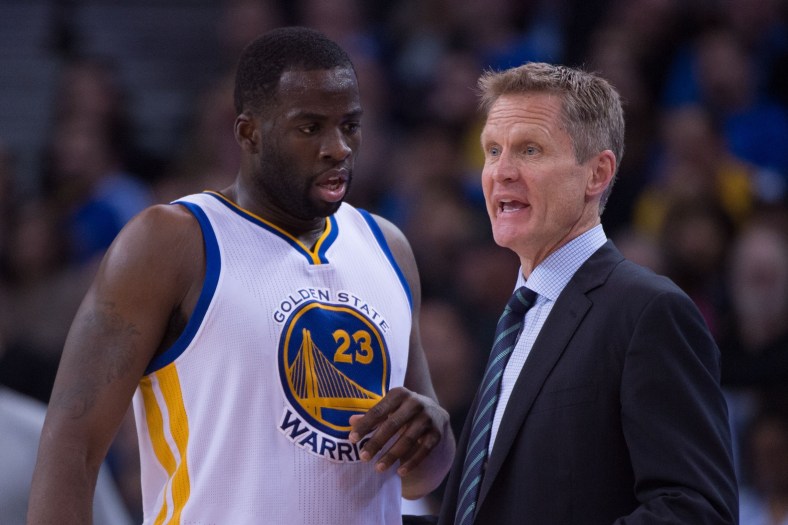
Superstars and key players grab the most headlines, but complementary pieces are often a decisive factor in an NBA team’s success.
For some rosters, the X-factor is a player, perhaps a shooter, defender or someone returning from injury. For other clubs, it’s an entire unit like the bench — or even health. If the X-factor turns out positively, the team should near its ceiling in 2017-18.
Here is the biggest X-factor for each NBA team heading into the season.
Atlanta Hawks: Taurean Prince
Paul Millsap is gone. He cannot be replaced. But what level of production can everyone anticipate from Taurean Prince? In 10 games a starter during the regular season, he posted 11.4 points and 3.9 rebounds over 31.0 minutes per appearance. Prince followed that up with near-identical marks during six playoff starts. The 23-year-old is suddenly the most-intriguing forward on a retooled roster. Consistency would be welcomed since struggles from Prince means the Hawks would need to rely on DeAndre’ Bembry. He logged 371 minutes as a rookie compared to 981 for Prince.
Boston Celtics: Marcus Smart
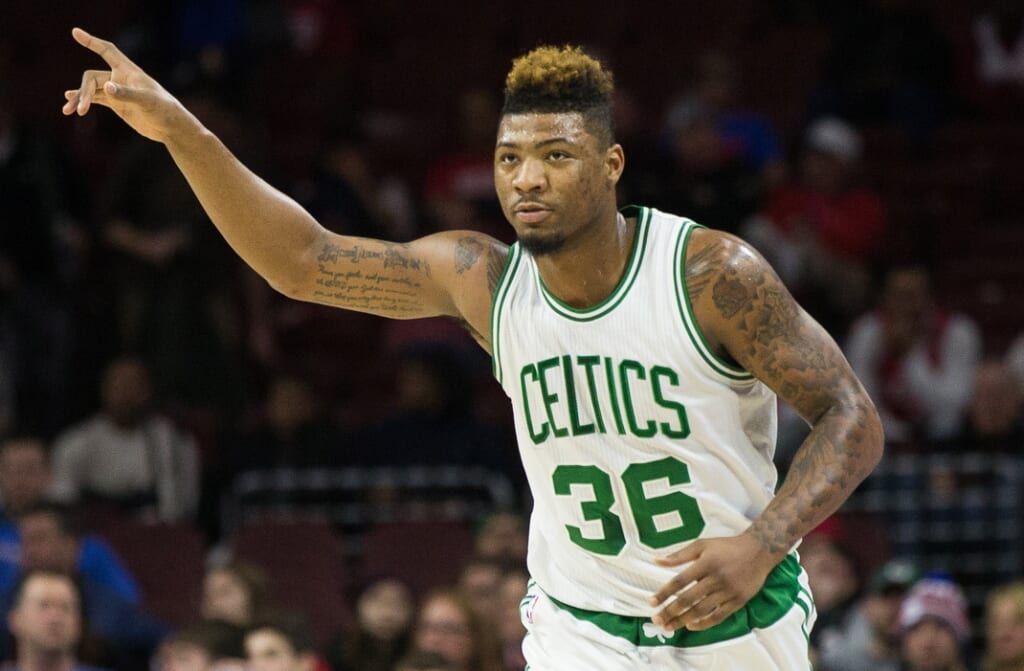
To sign Gordon Hayward, the Celtics traded a solid three-point shooter and key defender in Avery Bradley. Then in a trade to acquire Kyrie Irving, Boston shipped off another three-and-D piece in Jae Crowder. Marcus Smart must fill in. While the moves opened a spot for second-year player Jaylen Brown, Smart has already been giving 30 minutes per game. However, his shooting percentage and turnovers are an issue. The Celtics are a playoff lock, but they’ll only continue to advance if Smart is a lockdown defender who contributes efficiently on offense.
Brooklyn Nets: Caris LeVert
The 2017-18 season is basically about development for Brooklyn, which needs to give Caris LeVert a regular role. Extrapolated to 36 minutes per game, he averaged 13.6 points, 5.5 rebounds, 3.2 assists and 1.4 steals last year. While LeVert probably won’t receive more than about 28 minutes at best, that’s a quality all-around line for a top reserve — as long as his 32.1 three-point percentage increases. The Michigan product’s ability to create off the dribble is also a useful complement for the Nets, particularly if LeVert is featured in the second unit.
Charlotte Hornets: Malik Monk
Charlotte has plenty of defense. Now, can the Hornets find an advantageous spot for Malik Monk to take over games? He averaged 19.8 points with shooting marks of 39.7 from long distance and 45 percent overall during his lone year at Kentucky. Given that production and a high draft slot, you’d expect Monk to contribute immediately anyway. But the Hornets simply must include him in the rotation now that Nicolas Batum will be sidelined due to a significant elbow injury. Monk needs to provide the type of scoring threat off the bench Charlotte has rarely enjoyed.
Chicago Bulls: Nikola Mirotic
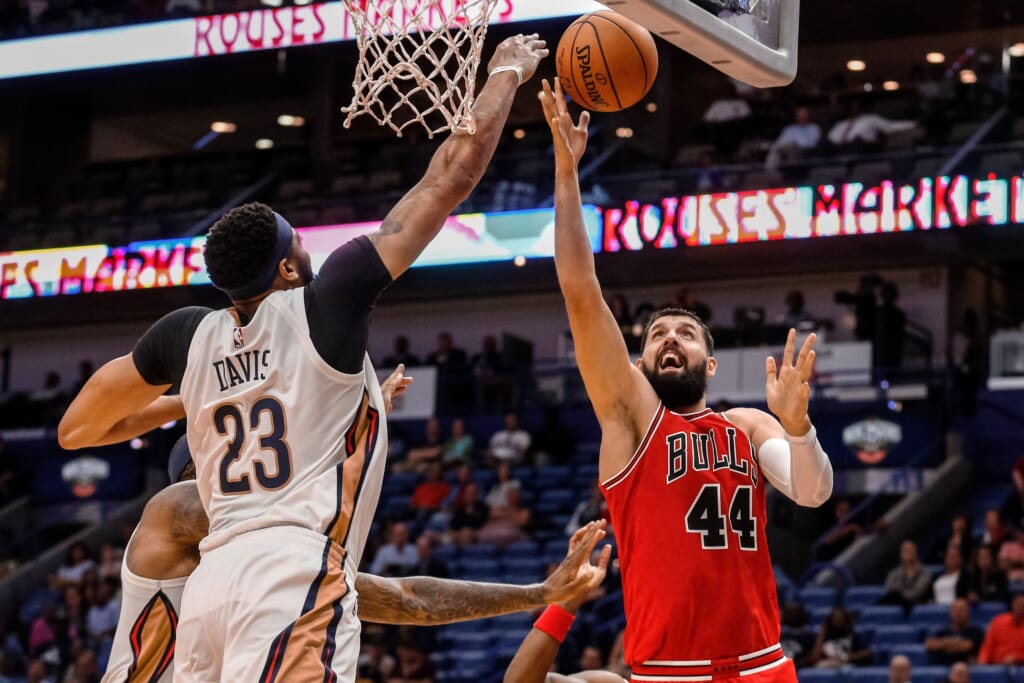
Chicago’s success depends largely on Nikola Mirotic. After an eventful offseason — one that included a somewhat-hazy outlook on his own future before the restricted free agent ultimately signed — the stretch 4 has become the featured player for the Bulls. The buzz word for Mirotic is “consistency,” and it’s evidenced in him scoring 10-plus points in just 34 of his 70 games last season. He’ll waver from a 20-point outburst to four points the following night. But with five of the team’s top-seven scorers from 2016-17 all wearing different uniforms, Chicago needs to know it can rely on Mirotic for 15 points every night.
Cleveland Cavaliers: LeBron James
The Cavaliers would be lost without LeBron James. With him on the floor last season, Cleveland recorded an offensive rating of 114.9 with a defensive mark at 107.1, per NBA.com. When James hit the bench, the offensive clip plummeted to a paltry 101.4 while the defensive rating dipped to 109.9. In other words, the Cavs were 16.2 points per 100 possessions better with LeBron on the floor. They go as he does. James has a deeper supporting cast in 2017-18, but Cleveland’s championship dreams hinge on LeBron shouldering a heavy load.
Dallas Mavericks: Dennis Smith Jr.
Yogi Ferrell performed admirably after the franchise took a chance on the Indiana product, but Dallas needed another fresh face in the backcourt. Although J.J. Barea and Devin Harris are familiar veterans, their upside is limited. Dennis Smith Jr., however, has explosive potential as a scorer and is a good passer. He averaged 18.1 points and 6.2 assists at North Carolina State. The frontcourt is stable with Dirk Nowitzki, Harrison Barnes and Wesley Matthews, so Smith could be the determining factor in how long the Mavericks stay in the postseason discussion.
Denver Nuggets: Jamal Murray
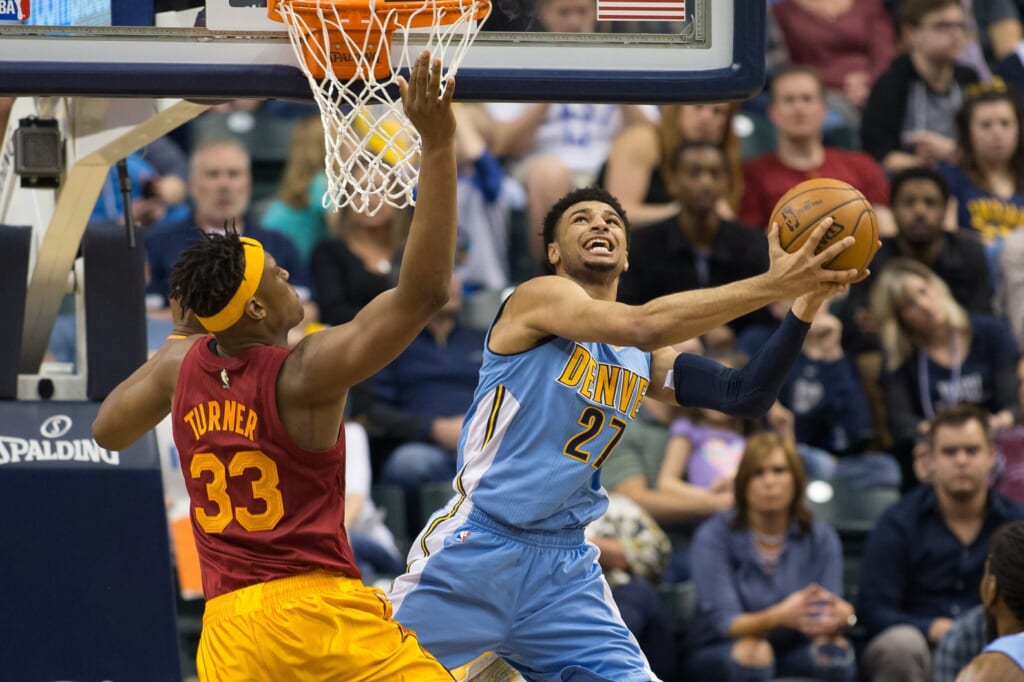
Emmanuel Mudiay may be running thin on chances to prove himself with the Nuggets in the near future. By no means is Mudiay a lost cause, but Denver has greater expectations this season. The team might put more faith in Jamal Murray, who assembled a reasonably promising rookie campaign with 9.9 points and 2.1 assists. Granted, he was less efficient as a shooter — which should be Murray’s greatest strength — than expected and was unspectacular on defense. But if Murray improves offensively and continues to show quality effort on the other end, the Nuggets will be the playoff team most believe they are.
Detroit Pistons: Andre Drummond
Looking solely at statistics, it would seem Andre Drummond has been stellar for the Pistons. Since becoming a full-time starter four seasons ago, the center has racked up 14.3 points and 13.8 rebounds per appearance while missing only three games. But another step remains between high-level producer and perennial All-Star. Detroit will remain a fringe postseason squad as long as Drummond labors to reach the next level, especially as a defender and free-throw shooter. He already has five years of experience at just 24 years old, so Drummond is a veteran yet poised to enter what should be his prime. It’s time for him to show that all-around potential.
Golden State Warriors: Draymond Green
Draymond Green is the reason Golden State can utilize any number of creative lineups. Despite standing just 6-foot-7, he’s both willing to defend and effective against larger players who live in the post. Conversely, though he’s built like a forward, Green can step out and lock down the perimeter. Over the last three seasons, the Michigan State product has posted an impressive stat line of 12.0 points, 8.5 rebounds, 6.0 assists, 1.7 blocks and 1.3 steals. Green does a little bit of everything, and he’s an essential cog for the dominant Warriors.
Houston Rockets: P.J. Tucker
The regular season will merely be a formality for the Rockets. The combination of All-Star guards James Harden and Chris Paul will propel Houston to a high seed in the Western Conference. What happens after is partially dependent on P.J. Tucker, who failed to match his billing as a “LeBron Stopper” during the 2017 playoffs. James scored 35-plus points in all four games of a sweep against Toronto. If Tucker doesn’t change that with the Rockets, their season will once again end opposite Kevin Durant and the Warriors or Kawhi Leonard and the Spurs.
Indiana Pacers: Victor Oladipo
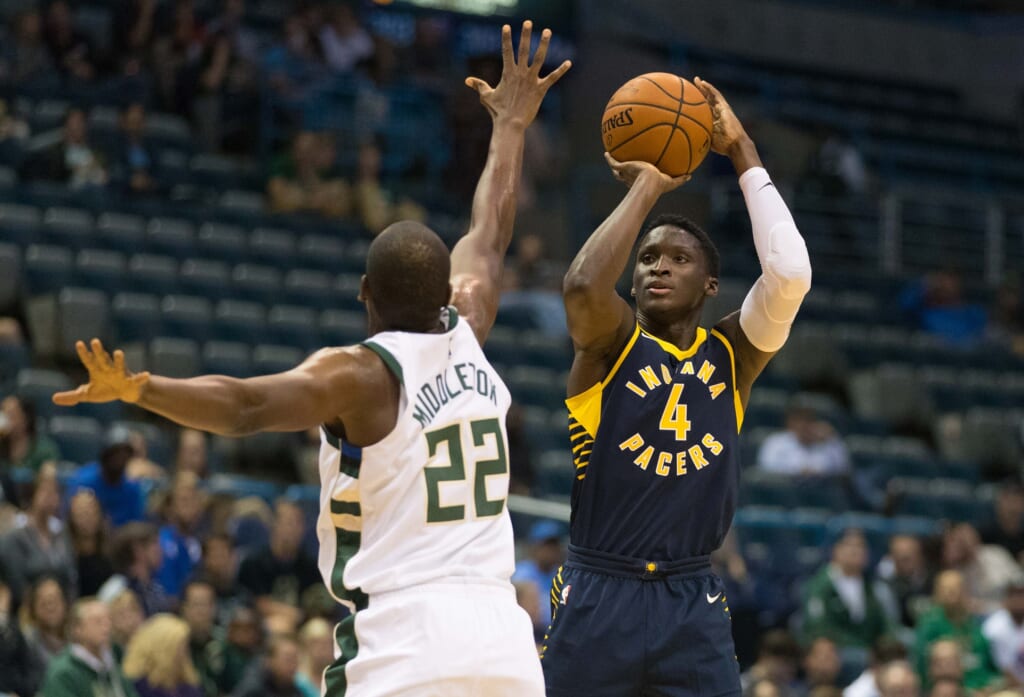
Myles Turner has become the focal point of the Pacers, but the third-year player can’t do it alone. Victor Oladipo, the primary return of the Paul George trade, recorded 15.9 points on 44.2 percent shooting as the second fiddle to Russell Westbrook last season. Indiana will require similar contributions to avoid being a laughingstock in the East. While a return to his assist output with Orlando (4.0 per game) would be welcomed, that seems improbable because the Pacers don’t have a player like Westbrook who is capable of handling such an expansive role.
Los Angeles Clippers frontcourt
DeAndre Jordan is a fixture in the Los Angeles frontcourt, having played 550 of 558 possible games during the last seven seasons. Blake Griffin, on the other hand, has battled a string of injuries over the last three years, just like marquee addition Danilo Gallinari. Losing Paul to the Rockets lowers the ceiling for the Clippers, but they’re still a playoff team if Griffin and Gallo are healthy. That’s just easy to say on paper and could be problematic in reality. If either (or both!) players watch from the sideline, LA would turn to Wesley Johnson, Sam Dekker and maybe even slide Lou Williams to the three. The worst-case scenario is ugly.
Los Angeles Lakers: Julius Randle
Julius Randle is a respectable weapon on the offensive end. He contributed 13.2 points on 48.8 percent shooting last season, grabbing 2.0 offensive rebounds and dishing 3.6 assists per game. Between Randle and rookie guard Lonzo Ball, ball movement shouldn’t be an issue for the starting lineup. Randle isn’t much of a floor-stretcher, though, and his defense is average. The Kentucky product has the makings of a reliable starter, but his development this season is crucial for the Lakers to climb out of the West’s cellar in 2017-18 and have legitimate hopes of a postseason run next year.
Memphis Grizzlies: Chandler Parsons
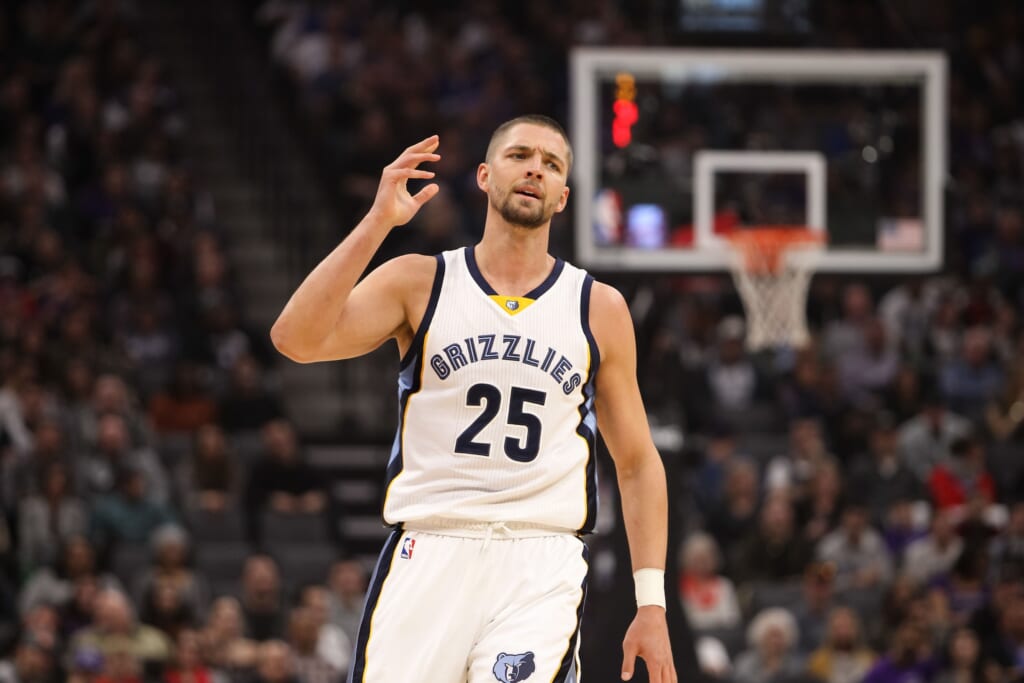
Memphis took the Spurs to six games during the 2017 playoffs thanks to Marc Gasol and Mike Conley, perhaps the most underrated one-two star punch in the league, and without Chandler Parsons. His return offers a more encouraging outlook for the Grizzlies, who restocked their roster after several veterans bolted to play under former Memphis coach Dave Joerger in Sacramento. Parsons, who only logged 675 minutes last season, needs to show quickly that he’s moved past the injury and is still the player that deserved a hefty contract. Otherwise, the Grizzlies will have a $94 million reserve not aiding a postseason chase.
Miami Heat: Justise Winslow
Whether he starts or plays off the bench doesn’t matter, Justise Winslow will be an important piece for the Heat. Last year, he tallied 10.9 points, 5.2 rebounds, 3.7 assists and 1.4 steals in 34.7 minutes per game. Unfortunately for both Winslow and the Heat, injuries limited him to just 18 appearances. It’s clear he has elite defensive ability, but the Duke product remains a work in progress as a shooter. Winslow mustered a meager 35.6 percent clip from the field. While Miami is a relatively safe bet to reach the playoffs, the Heat would be even more dangerous if opponents need to respect Winslow on both ends of the floor.
Milwaukee Bucks: Being healthy at the right time
Since drafting Jabari Parker three years ago, the Bucks have reached the postseason twice. But Parker has notched a grand total of zero career minutes in the playoffs. A torn left ACL prematurely ended his season in both 2015 and 2017. Last year, the timing of the injury was undeniably cruel. On the day Khris Middleton made his debut following a 50-game absence to start the campaign, Parker exited due to an ACL tear. With a rising superstar in Giannis Antetokounmpo, Milwaukee has an exciting team. But the Bucks won’t have a chance at pulling off a postseason shocker unless the key players are healthy at the end of the season.
Minnesota Timberwolves: Andrew Wiggins
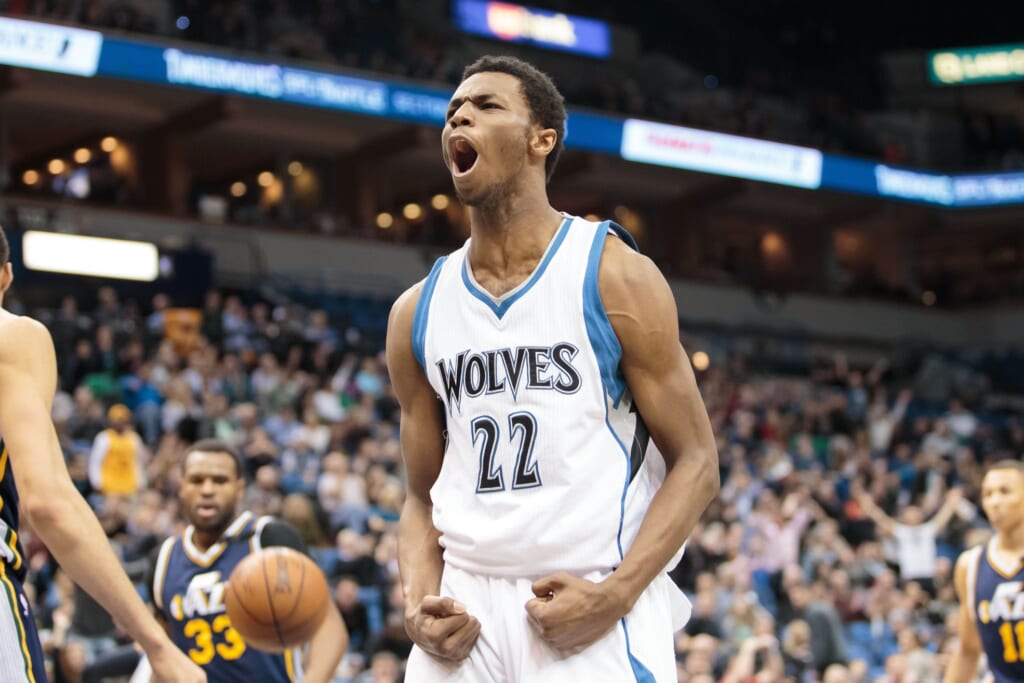
Andrew Wiggins wanted to be paid like a franchise cornerstone. And that became a reality prior to the start of the season. However, he’s nowhere near a finished product. According to ESPN’s Real Plus-Minus, he was the ninth-worst defender in the league last season. That may seem incorrect because of his effort on the ball, but opponents can exploit Wiggins away from the play. Plus, while Minnesota has been most effective on offense with the Kansas product on the floor, his skill set overlaps with Jimmy Butler — and the former Bulls guard is a better creator. They can coexist, yet the onus will be on Wiggins to complement Butler, not the other way around.
New Orleans Pelicans: Ian Clark
Ian Clark developed into a respectable reserve as a member of the Warriors and went chasing a larger role this summer. He’s about to get it. Rajon Rondo will be sidelined for 4-6 weeks due to a sports hernia, according to Shams Charania of The Vertical. The Pelicans may try to fill some of Rondo’s minutes with E’Twaun Moore, but Clark is the better option. He can share ball-handling duties while on the court and provide a spacing threat. The caveat, however, is Clark has never played more than 15 minutes per game. Cold stretches didn’t much matter in Golden State for obvious reasons, but that’s a legitimate concern for a team with a slim margin for error.
New York Knicks: Tim Hardaway Jr.
Expectations are hard to reach in a massive market like New York, and the organization paying Tim Hardaway Jr. $71 million won’t make it any easier on him. While that payday is fantastic for the guard, he must be prepared for regular criticism. Hardaway put together a career year for the Hawks in 2016-17, posting 14.5 points on 45.5 percent shooting. Anything less will result in that external pressure and sting a Knicks team in desperate need of production from the guards. Ron Baker, Ramon Sessions and Frank Ntilikina don’t offer 25-point bursts like Hardaway.
Oklahoma City Thunder: The second unit
Westbrook has proved he’s enough for a playoff roster. Throw in Paul George and Carmelo Anthony, and the Thunder are a lock for the postseason. The biggest unknown, though, is how Billy Donovan will build the rotation. Oklahoma City doesn’t have much depth, after all. Patrick Patterson, Jerami Grant and Alex Abrines are all between quality and serviceable, but Isaiah Canaan, Semaj Christon, Terrance Ferguson and Josh Huestis are unproven. Kyle Singler is what he is, and it’s not wonderful. If the Thunder can get their bench to be league average, that’s a win.
Orlando Magic: Jonathon Simmons
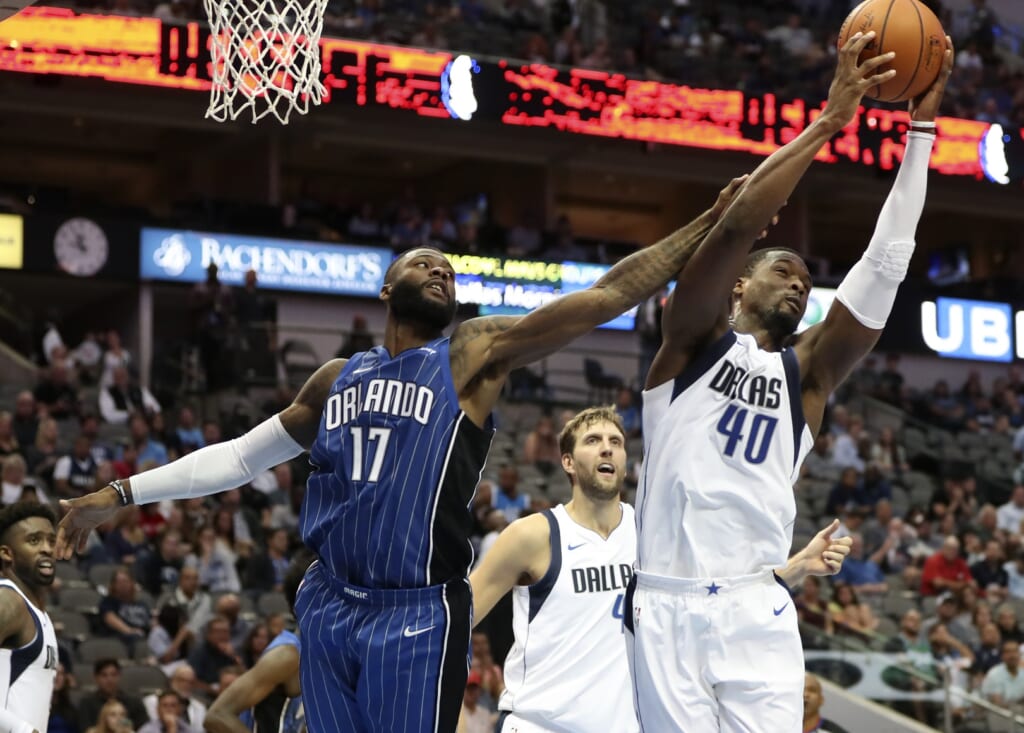
Jonathon Simmons has a memorable story of going from a walk-on D-League tryout to earning a contract with the Spurs. And he impressed so much that Orlando signed “The Juice” to a $20 million deal this offseason. How much do the Magic expect from him, though? Simmons showed his value in a series win over the Rockets, but an enhanced role doesn’t necessarily mean production also jumps on a linear track. Simmons can thrive in a complementary spot and boost an Orlando bench that ranked fourth-worst in the NBA last season, per hoopsstats.com.
Philadelphia 76ers: Health
Call it the “Top-Pick Curse,” because these guys cannot stay healthy. Although Joel Embiid looks like a superstar, he’s only played 31 of 246 possible games. Ben Simmons missed his first NBA season because of an injury. And even Markelle Fultz, the latest high draft selection for the Sixers, is dealing with a knee issue and potentially a serious shoulder problem before his rookie campaign officially begins. Can Philly catch a break in the health department? The young players are elite talents, but talent doesn’t matter when it’s relegated to the sideline.
Phoenix Suns: Josh Jackson
Defense will not be Phoenix’s strong suit, but if rookie Josh Jackson doesn’t live up to his billing, the Suns will be even worse. Granted, Jackson’s defense isn’t going to be the difference between contention and not. Phoenix is still at least one season away from even joining the playoff discussion in the Western Conference. Perhaps it’s better to think of Jackson’s development as the X-factor. He’s never faced the caliber of NBA veterans on a nightly basis. Learning how to handle the huge responsibility of defending Kevin Durant and Kawhi Leonard and Paul George while staying active offensively is a key to Jackson’s progression for the future.
Portland Trail Blazers: Jusuf Nurkic
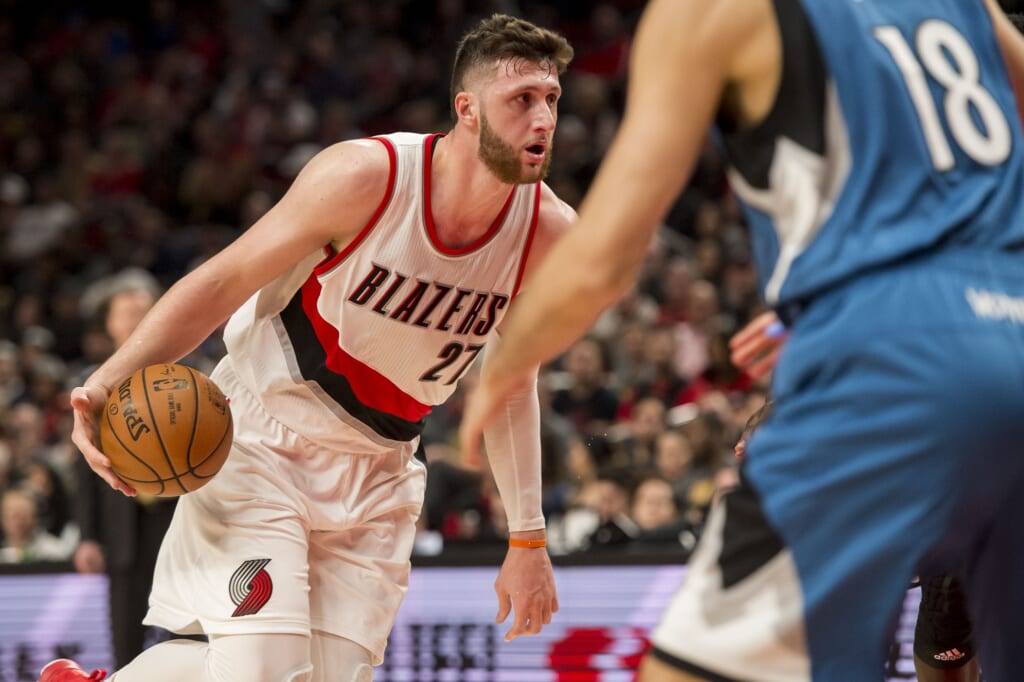
Throughout the 2016-17 season, Portland labored to find a scoring threat in the frontcourt. The burden for success fell on Damian Lillard and C.J. McCollum every night, but they needed more help. Jusuf Nurkic’s arrival via trade supplied what the roster was missing. He contributed 15.2 points, 10.4 rebounds and 3.2 assists per game over 20 appearances, lifting the Blazers to the playoffs. So, we need to discover whether that was a torrid streak or something more. After all, Nurkic’s playing time jumped from 17.7 minutes per night with the Nuggets to 29.2 in Portland. The Blazers would be a dangerous first-round matchup if Nurkic is that player.
Sacramento Kings: Dave Joerger
Sacramento has an interesting roster because it includes seasoned veterans, young players and very little in between. George Hill, Zach Randolph, Vince Carter and Kosta Koufos have been around the block a few times. Conversely, none of Willie Cauley-Stein, Buddy Hield, Skal Labissiere, De’Aaron Fox and Justin Jackson have more than two years of experience. Who will Joerger feature in the starting lineup? How does that affect the rotation? Who plays in clutch moments? The Kings likely aren’t going to threaten for the playoffs, but the future of the franchise is in Joerger’s control.
San Antonio Spurs: Patty Mills
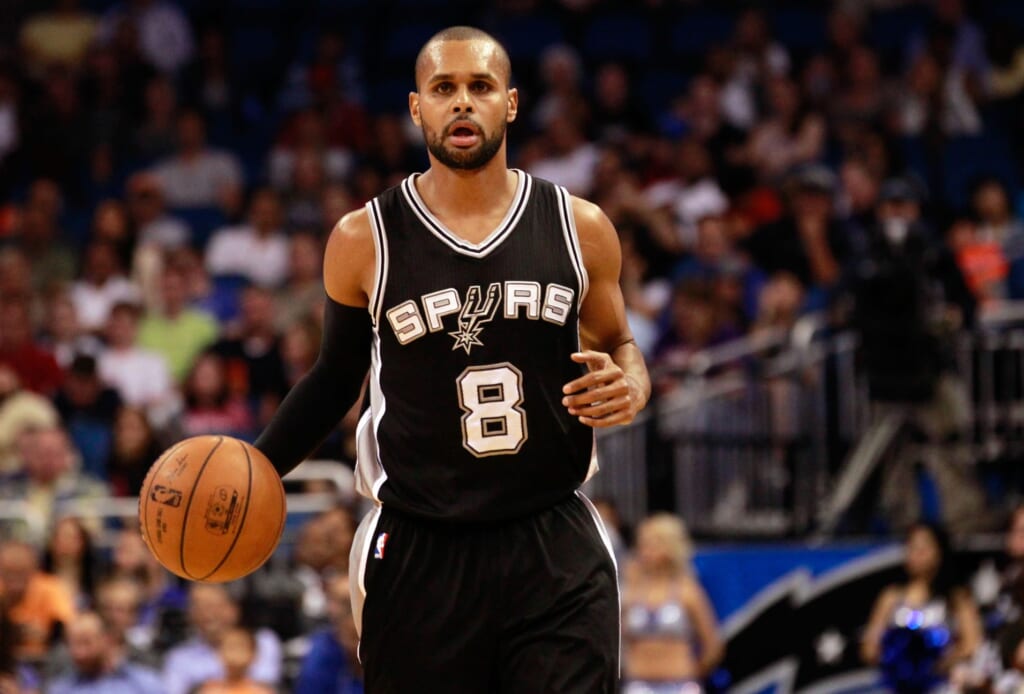
Longtime guard Tony Parker is motivated to play his basketball upon returning from injury. Nevertheless, his initial absence puts considerable pressure on Patty Mills to steady the position. Dejounte Murray, a promising yet seldom-used player, may shift into the starting lineup, but Mills should play the majority of minutes. And though he’s not the primary ball-handler for the reserves — that’s still Manu Ginobili — Mills set a career high with 3.5 assists per game last season. Then, once the postseason arrives, Mills’ three-point prowess will be a must-have for San Antonio to keep up with Houston and/or Golden State.
Toronto Raptors: C.J. Miles
In recent seasons, Toronto’s effectiveness has plummeted once the regular season ended. Part of that problem is an abysmal 30.9 three-point percentage during the last three postseasons combined. And in each year, the Raptors ranked no better than 11th out of 16 playoff teams. C.J. Miles isn’t a magical answer to the entire problem, but he is a tremendous shooter — especially from the corner. When Kyle Lowry or DeMar DeRozan inevitably encounter a cold stretch, Miles could provide a 20-point outburst and save Toronto for another day.
Utah Jazz: Derrick Favors
The Jazz must replace Hayward’s scoring, and Rodney Hood can’t be expected to accomplish that by himself. Derrick Favors should be able to assist that effort, though injuries have plagued the Georgia Tech product during the last two seasons. He missed a combined 54 games, and last year his scoring average dropped to an unassuming 9.5. Is that a sign of things to come? Or will a healthy Favors regain his previous form and boost the offense? The Rudy Gobert-led defense will be sensational, but Utah needs Favors to regularly bring value on the other end.
Washington Wizards: Revamped bench
In the 2017 playoffs, Washington’s starters posted the fourth-best efficiency difference, according to hoopsstats.com. The reserves, on the other hand, compiled the fifth-worst mark. John Wall and Bradley Beal are a dangerous one-two punch, but the bench cannot be an overwhelming problem for the Wizards to have real postseason success. Washington brought in Tim Frazier, Jodie Meeks and Mike Scott to bolster the second unit, and that depth will be tested immediately while Markieff Morris recovers from hernia surgery. Should the new additions struggle, however, the Wizards may seek a short-term, no-guarantee solution on the trade market. Again.